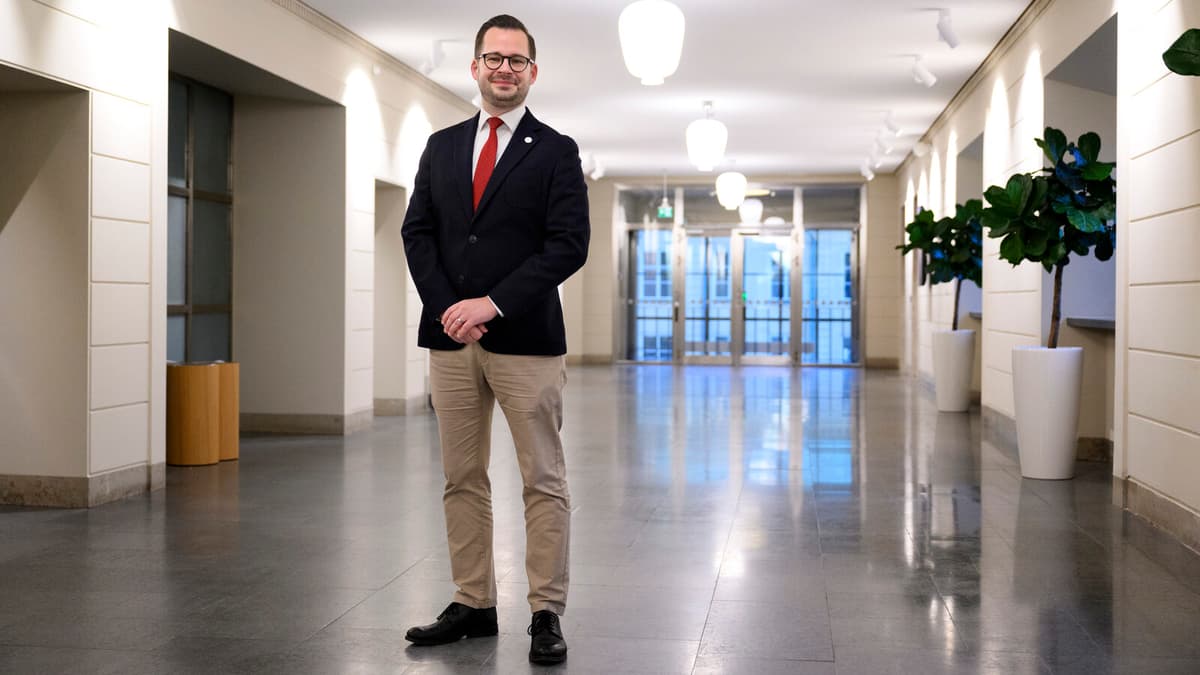In the end of the week, hundreds of Sweden Democrats from all over the country gather in Norrköping to look ahead. For party secretary Mattias Bäckström Johansson, increased cooperation with the Tidö parties is the way forward.
In this way, the stage will be set to take a government position.
The Tidö agreement is a solution to the fact that we are not part of the government. It is a solution for only this term. Our goal is to be either a government party or an opposition party after the next election, he says.
He highlights the climate issue as a positive example of how the Tidö parties have cooperated and gained a majority in the Riksdag.
To facilitate a transition, we want to continue to expand the cooperation and align ourselves on more issues where there is potential to reach an agreement.
Will you act in opposition even if it would mean an S-led government?
There are many hypothetical scenarios one can imagine. First, we need to have an election result and know the actual conditions.
Raising the school issue
Gang crime and immigration are SD's flagship issues. But there are more issues where the party sees opportunities to gain ground. Rural policy, for example, where SD already attracts voters. Another is school – an issue several parties like C, L, and M are already fighting to profile themselves in. SD wants to stand out by taking an even tougher stance to restore calm in schools.
I believe there is much more to gain for us in those issues.
"Homework"
According to him, the party is also missing out on many voters, not because of the policies they pursue, but because of a negative feeling some voters have towards the party. SD has gone through several scandals in recent years – such as a gang leader participating in Jimmie Åkesson's wedding, party representatives being forced to leave after allegations of racism, and Kalla Faktas' revelations about so-called troll factories. According to Mattias Bäckström Johansson, the problem lies with the opposition's rhetoric and "bad words" about SD.
It makes it harder to generate interest in the policy issues we have. It stays in some kind of emotional image of what the party is.
It is a homework assignment we have been working on for a long time, but will continue to do.






